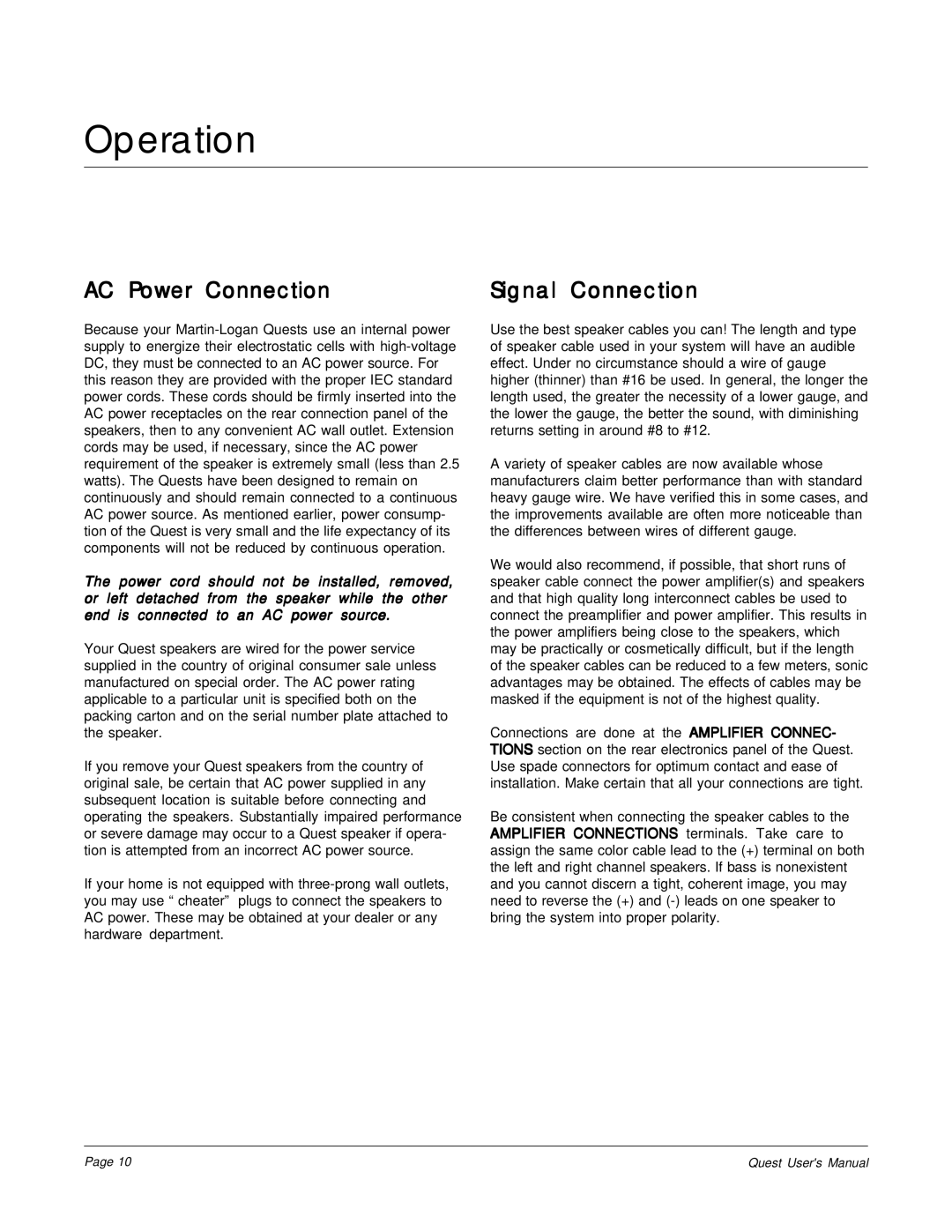
Operation
AC Power Connection
Because your
The power cord should not be installed, removed, or left detached from the speaker while the other end is connected to an AC power source.
Your Quest speakers are wired for the power service supplied in the country of original consumer sale unless manufactured on special order. The AC power rating applicable to a particular unit is specified both on the packing carton and on the serial number plate attached to the speaker.
If you remove your Quest speakers from the country of original sale, be certain that AC power supplied in any subsequent location is suitable before connecting and operating the speakers. Substantially impaired performance or severe damage may occur to a Quest speaker if opera- tion is attempted from an incorrect AC power source.
If your home is not equipped with
Signal Connection
Use the best speaker cables you can! The length and type of speaker cable used in your system will have an audible effect. Under no circumstance should a wire of gauge higher (thinner) than #16 be used. In general, the longer the length used, the greater the necessity of a lower gauge, and the lower the gauge, the better the sound, with diminishing returns setting in around #8 to #12.
A variety of speaker cables are now available whose manufacturers claim better performance than with standard heavy gauge wire. We have verified this in some cases, and the improvements available are often more noticeable than the differences between wires of different gauge.
We would also recommend, if possible, that short runs of speaker cable connect the power amplifier(s) and speakers and that high quality long interconnect cables be used to connect the preamplifier and power amplifier. This results in the power amplifiers being close to the speakers, which may be practically or cosmetically difficult, but if the length of the speaker cables can be reduced to a few meters, sonic advantages may be obtained. The effects of cables may be masked if the equipment is not of the highest quality.
Connections are done at the AMPLIFIER CONNEC- TIONS section on the rear electronics panel of the Quest. Use spade connectors for optimum contact and ease of installation. Make certain that all your connections are tight.
Be consistent when connecting the speaker cables to the AMPLIFIER CONNECTIONS terminals. Take care to assign the same color cable lead to the (+) terminal on both the left and right channel speakers. If bass is nonexistent and you cannot discern a tight, coherent image, you may need to reverse the (+) and
Page 10 | Quest User's Manual |
